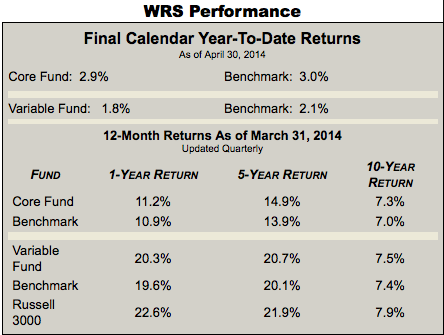Philadelphia’s pension system is only 47 percent funded – but due to a unique policy, it will be handing out bonus checks to many retirees in 2015 to the tune of $62.4 million.
That’s because the system pays out a bonus when it exceeds a set investment return target.
The target in 2014 was 8.85 percent. The fund returned over 11 percent.
So, retirees will receive a bonus for the first time since 2008.
But city Mayor Michael Nutter is now criticizing the bonus payments, saying they “jeopardize…the future health of the pension fund in a significant way.”
More on Nutter’s comments, from Philly.com:
Current Mayor Nutter said Tuesday that the law is financially irresponsible and raises questions about Kenney’s judgment as a mayoral candidate.
“We cannot always do everything we want, even if those things are to make people feel better,” Nutter said. “To run a big city, you have to not only deal with the issues of the present, but you need to be able to see the long-term impact of your actions.”
[…]
“Purely for political reasons, from my perspective, in an election year, City Council removed the minimum threshold,” said Nutter, who was not in office at that time. “In doing so, from my perspective, they jeopardized the future health of the pension fund in a significant way.”
Finance Director Rob Dubow said the pension fund crisis has taken an increasingly larger bite of the city’s revenue over time. About 7 percent of the budget went to the pension fund a decade ago, he said, a figure that is now up to 15 percent.
“Those are dollars we would otherwise spend on city services for everybody, retirees and the rest of our citizens,” Nutter said.
Before 2007, the bonuses could only be paid out if the pension fund was 76 percent funded or more.
But then-Councilman James F. Kenney lifted the funding limit on the bonus payments.
Photo credit: “GardenStreetBridgeSchuylkillRiverSkylinePhiladelphiaPennsylvania” by Massimo Catarinella – Own work. Licensed under CC BY 3.0 via Wikimedia Commons – http://commons.wikimedia.org/wiki/File:GardenStreetBridgeSchuylkillRiverSkylinePhiladelphiaPennsylvania.jpg#mediaviewer/File:GardenStreetBridgeSchuylkillRiverSkylinePhiladelphiaPennsylvania.jpg


